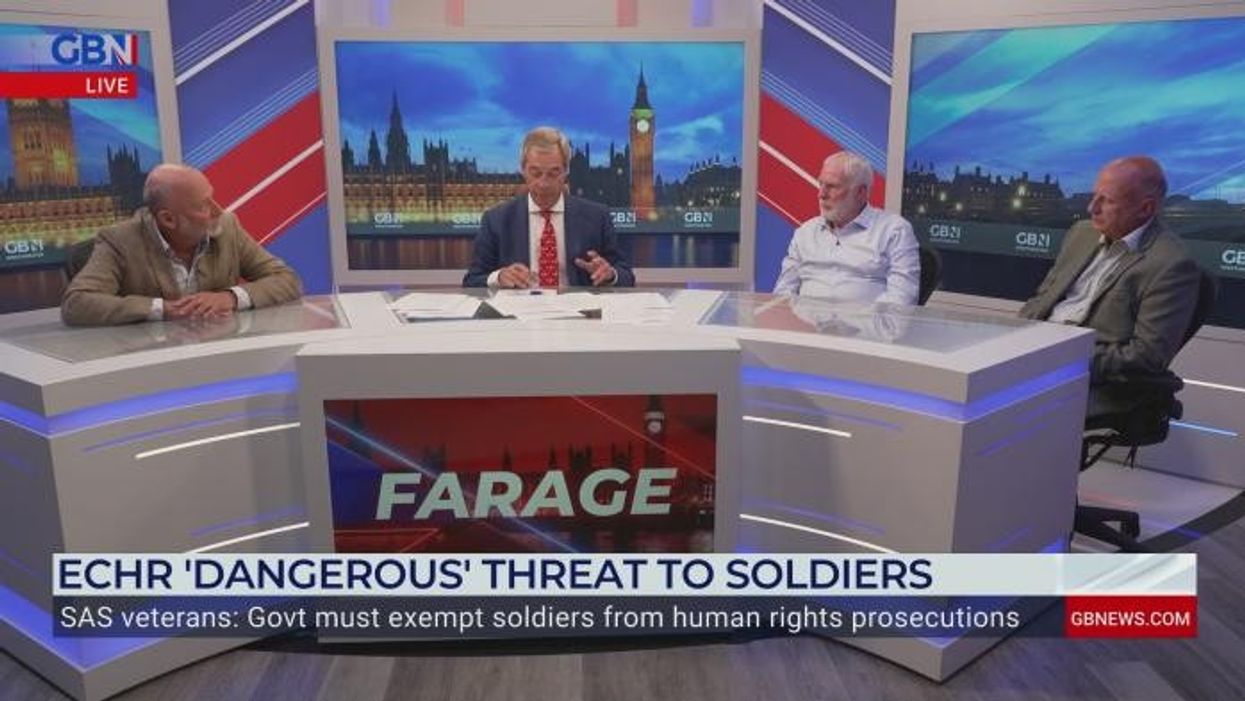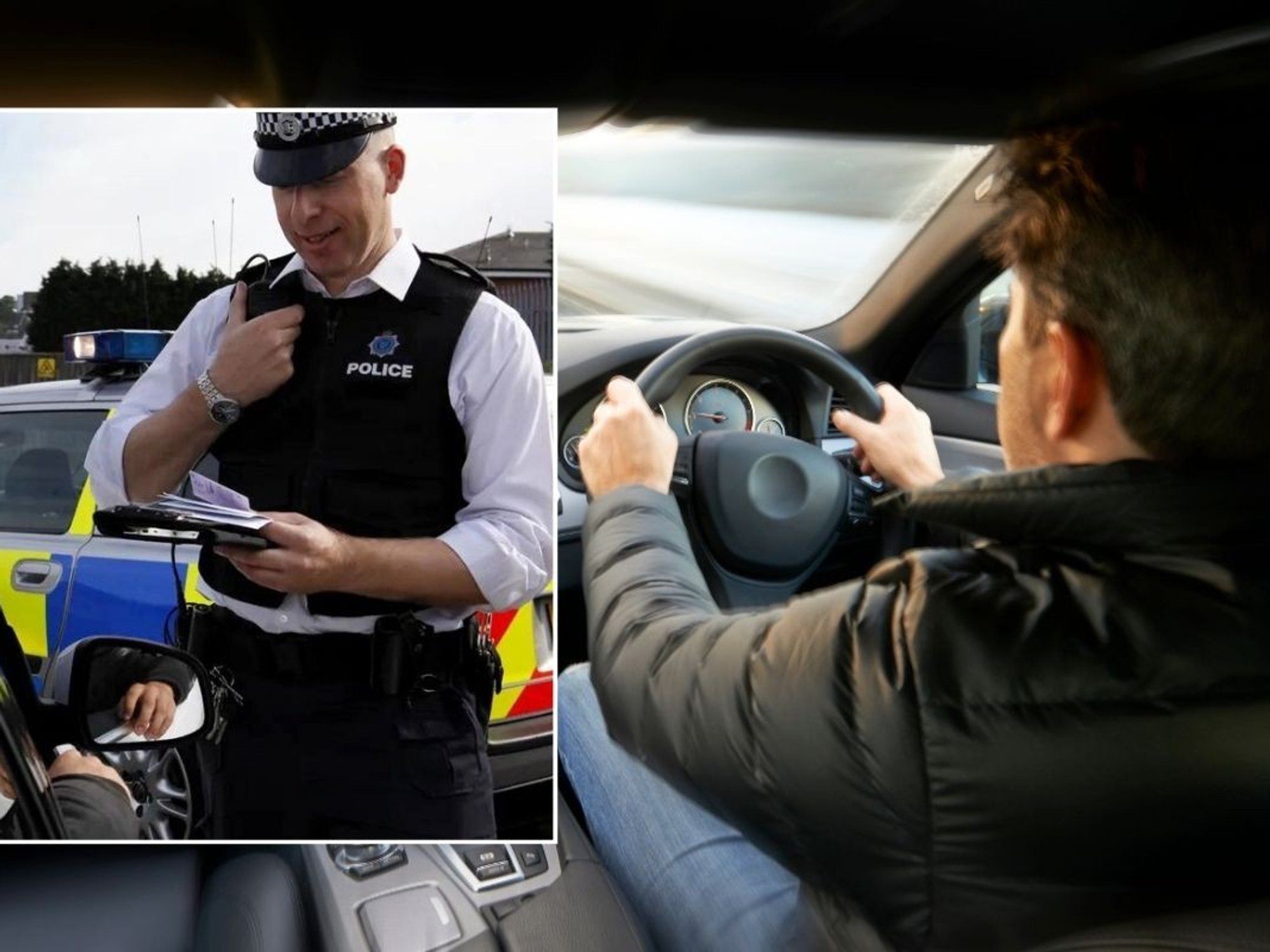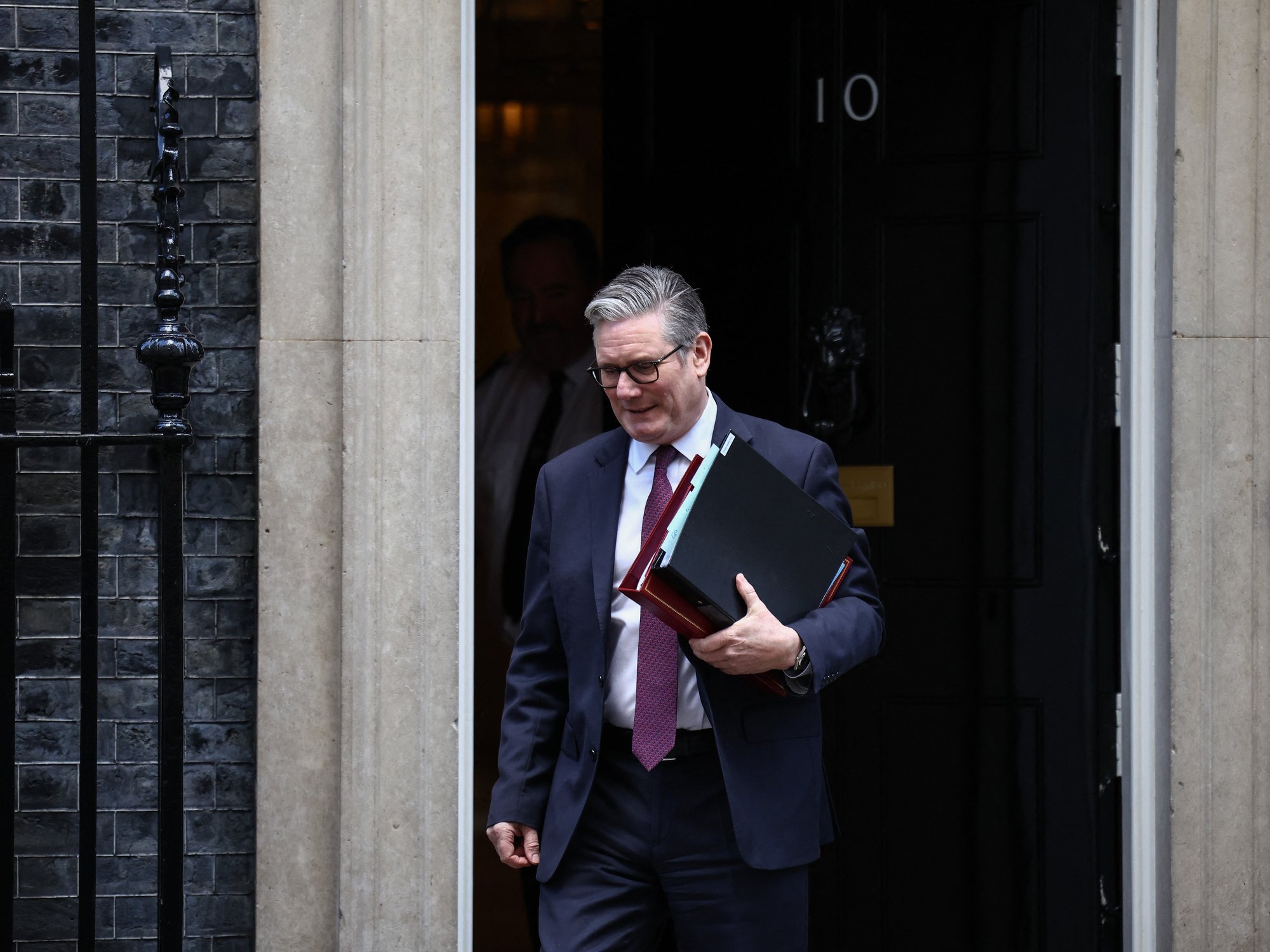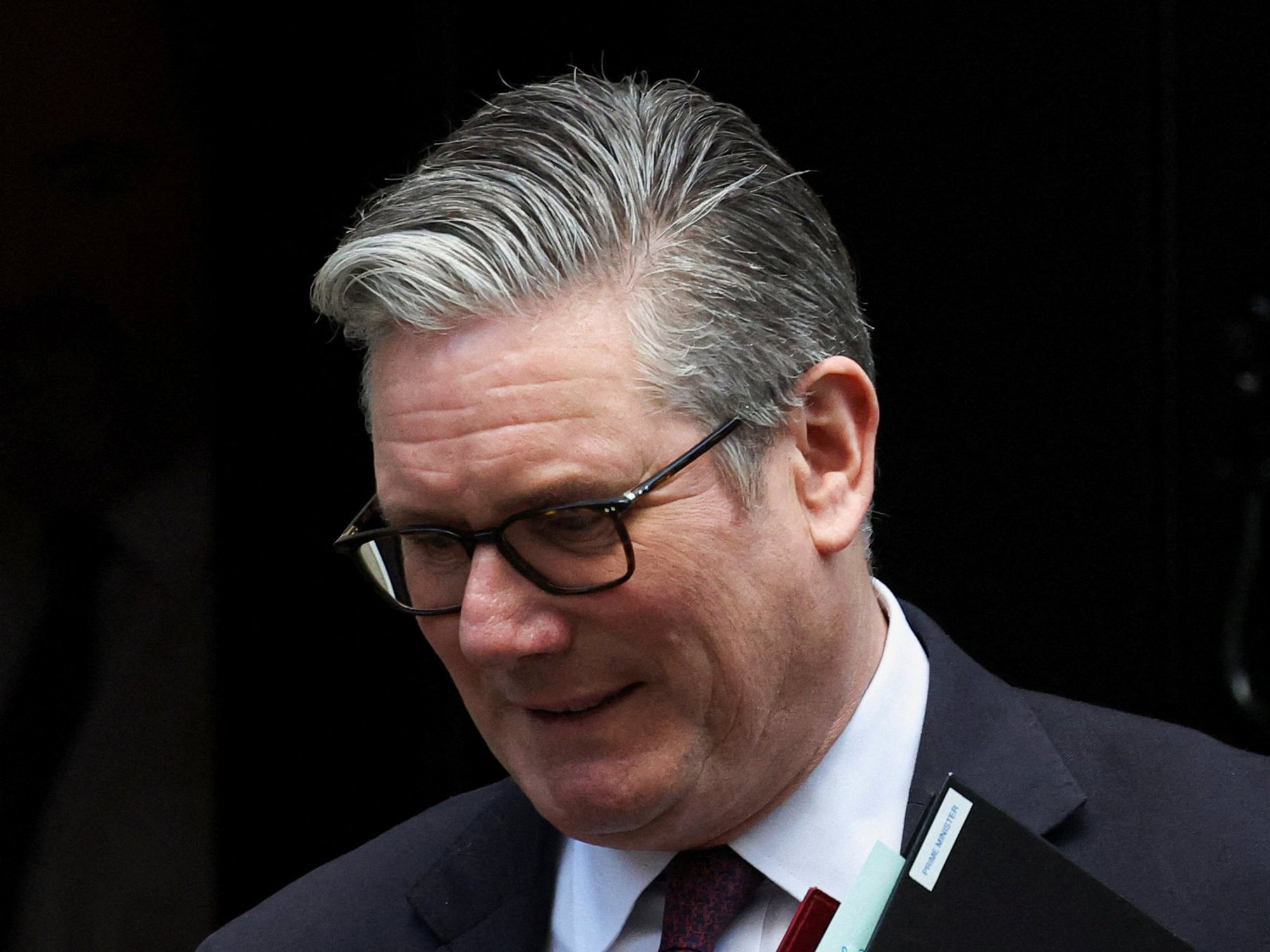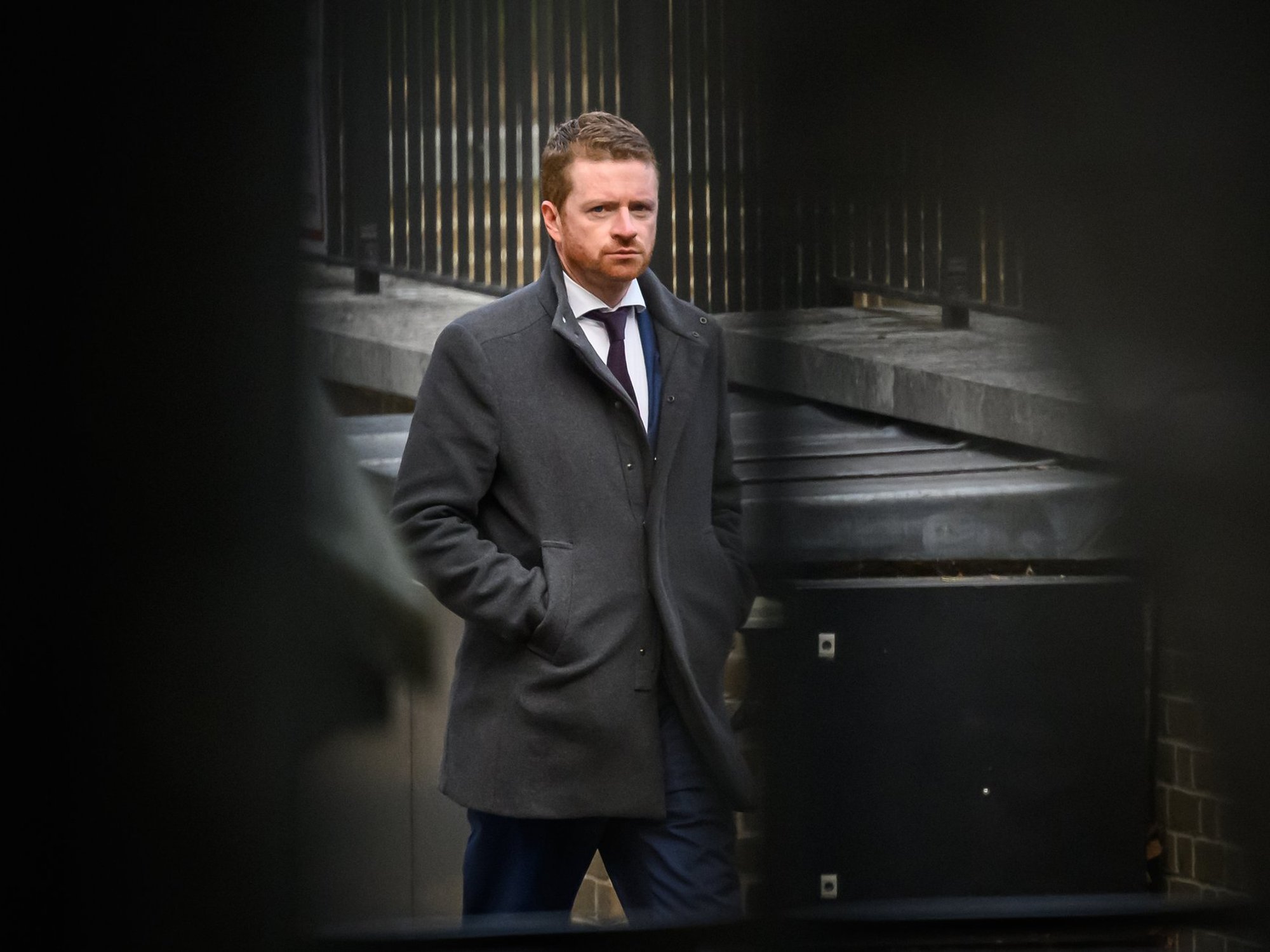SAS veterans urge Starmer to review ECHR's 'dangerous' threat to soldiers: 'Leaving them open to terrorists!'

Three veterans of the special regiment have slammed 'successive governments' for turning their backs on the SAS
Don't Miss
Most Read
Latest
Three SAS veterans have broken their cover after 30 years to call for Prime Minister Sir Keir Starmer to review the European Convention of Human Rights, to exempt personnel from prosecutions taken whilst fighting terrorists.
The three men who served in the command team of 22 SAS regiment have penned a letter to declare that Britain's soldiers are "gravely threatened today", and have "set aside reservations about discussing their service" to take action on the matter.
In the letter to The Times, they added: "This represents a dangerous failure of democracy and a repudiation of the Military Covenant between the British people, their Government and the armed forces.
"This betrayal of their SAS veterans, who need their support, not least so others like them will step forward in the future."

Three SAS veterans have broken cover to call for an exemption for personnel fighting terrorists
|PA / GB News
Discussing their letter, GB News host Nigel Farage was joined by Aldwin Wight, George Simm and Jamie Lowther-Pinkerton as they outlined the growing threat to UK soldiers.
Explaining why they wrote their letter of concern, Lowther-Pinkerton told Farage: "It pertains specifically to our soldiers 30 years ago, the ones we commanded. And the reason really is responsibility.
"Between the three of us, we sent these fellows into difficult circumstances, and they did their job to the best of their ability. And actually at the time it was found to be so that they had acted lawfully.
"But ever since they have been hounded. And it's not so much that this will lead to a prosecution, it won't. It's the process - some people have two or three decades being chased."
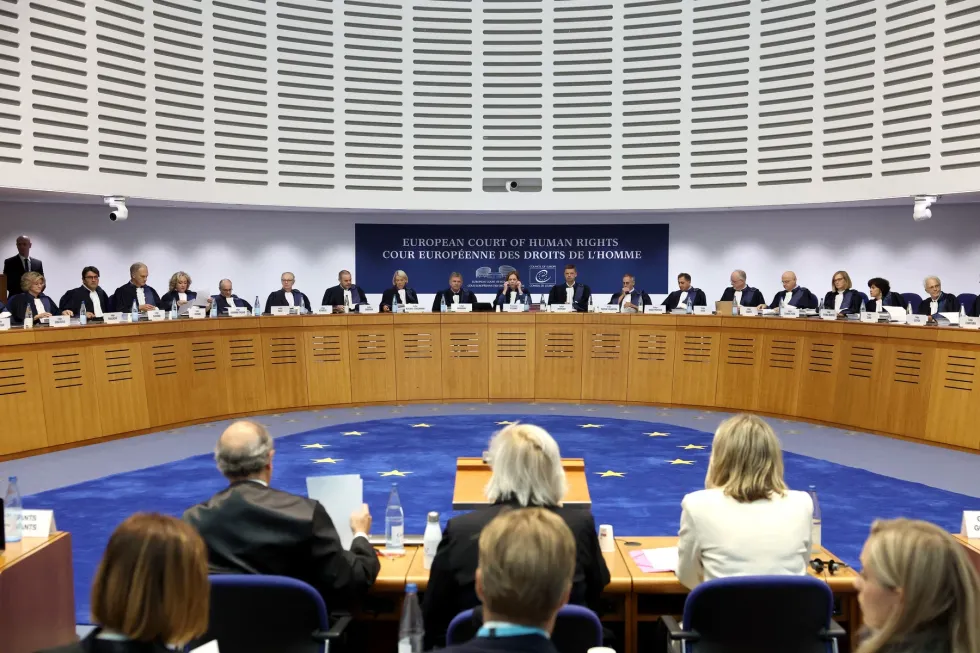
The jurisdiction from the European Convention on Human Rights was enshrined into UK law in 1998
|Getty
Revealing the impact on the veterans who have been affected by the legislation, Simm claimed that some veterans have suffered "severe mental health problems" and have been accused of "killing people in cold blood", to which he affirmed that as a soldier, "that is their job".
LATEST DEVELOPMENTS:
Simm told GB News: "I know of a number of cases, certainly two of them, have had serious mental problems. One of them was actually convicted in a court in Scotland as part of the process of the Article 2 inquests while he was mentally ill, which was grossly unfair.
"Another guy has spent 25 years now answering the same questions that keep coming round and round, and it doesn't appear he's getting any better. It's our job. The nation state demands that we defend our people. We sign up to defend the crown, which is the emblem of our country and our people.
"We're managed through the MOD and we engage in that process. The problem is, we are judged by a process that is controlled by Strasbourg."
Farage told the veterans he understood the "difficult situation" British soldiers are put in, but pressed Wight on the argument that there "are rules in place" which must be followed.
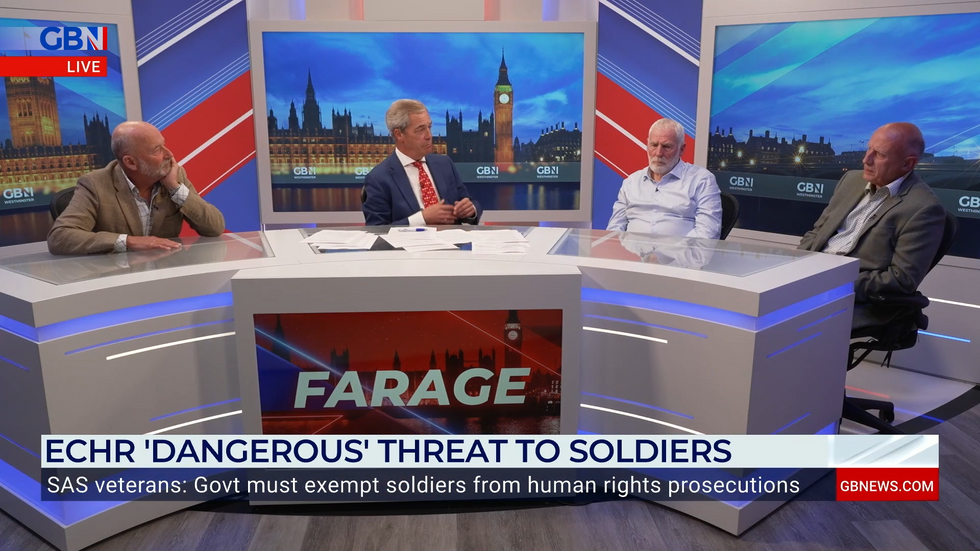
The SAS veterans sat down with Nigel Farage to discuss their plea to the British Government
|GB News
Wight responded: "There's a complete set of rules and we're brought up on them right from the start. My basic point is that if you ask a soldier to go out and put himself directly in danger that might lead to a fatality, there will be a 100 per cent full forensic debrief and post operational process, and it gets closed out at that point.
"If there has been wrongdoing, there has been wrongdoing. But because of Article 2, any complainant later on can come in and take a case against that soldier.
"If you put people off joining, volunteering, you will eventually lose the capability which is actually essential to your national strategy of counterterrorism. And that therefore leaves you open for the terrorists."
In a statement, the Ministry of Defence said it is the "longstanding policy of successive governments not to comment on UK Special Forces activity".


